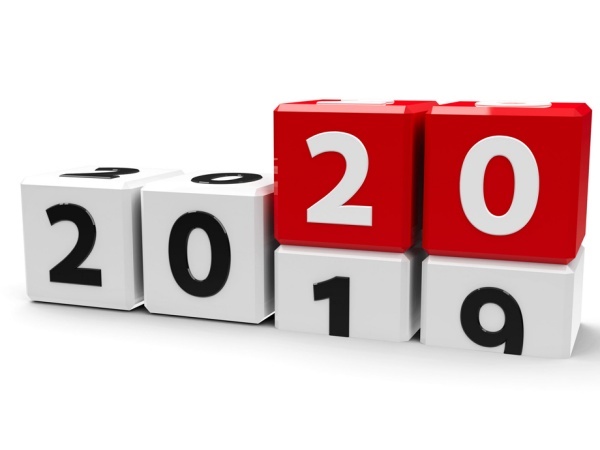
Count the soldiers and get back to me, writes Sihle Khumalo.
Although not entirely surprised, I was still taken aback when most national and international newspapers dedicated lots of space in December to reviewing the “highs and lows of a decade that is about to end”.
Let me state upfront that, although it makes sense – logically speaking – that the decade would run from 2010 to 2019, things are a little complicated on a practical level.
It all boils down to one little misapprehension – there was no year zero (0). Yep, whoever was counting decided in their wisdom that instead of adhering to the numerical standardised way of counting – where zero is the first number and one is the second number – they started with the second number, which is one.
From that moment on, logic was thrown out of the window. In an instant, zero became a one.
Let me use an analogy. Imagine a baby is born today. You will need to count days, weeks and eventually months before the baby becomes a year old. You cannot on day one say the baby is already a year old. But that is exactly what happened when year 0 was skipped. And there has been confusion ever since.
For the record, the new millennium started on January 1 2001 and not – I repeat, not – in January 2000, as was widely reported.
Nobody simplified it better than Frank Morgan – professor of mathematics at Williams College in Massachusetts in the US – when he wrote: “Imagine a vast army of soldiers with 1 000 men in each row. In the first row are soldiers one to 1 000, in the second row 1 001 to 2 000, and in the third row 2 001 to 3 000. The third row starts with soldier 2 001 … So we should celebrate the official calendar millennium on January 1 2001.”
Therefore, if you fast forward to today, you can logically conclude that 2020 cannot be a start of a new decade. It is, in fact, the last year of a decade that started in 2011. In simple terms, as explained in the previous paragraph, if the new millennium (and century, as well as a decade) started in 2001, it means the decades are as follows: 2001 to 2010; 2011 to 2020; and then 2021 to 2030.
History has mainly blamed a sixth-century monk, Dionysius Exiguus, who – after some calculations – concluded it was 525 years after the “incarnation of Christ”. He went on to compile future Easter dates for the next 95 years. In truth, the Alexandrian calendar had compiled Easter dates from as far back as the year 311. The Alexandrian calendar – itself based on the Egyptian calendar – is used by the Coptic Orthodox Church.
In any case, Dionysius’ calculations were soon questioned. Analysts and experts at the time felt very uncomfortable with how he got to “year 525”.
Later, some calculations allegedly proved that Dionysius’ calculations were wrong by as much as 10 years. If the latter calculations are correct, that means you and I are 10 years older than we actually are. Okay, maybe not. But surely you get my drift – we are 10 years off the mark.
To ensure that most things are standardised on planet Earth, there is a global entity called the International Standardisation Organisation, which, in 1988 published its first standard (number 8 601) on date and time formats. The main objective for this specific standard was for the year format to change from YY to YYYY, so that the year 2000 would be recorded as 2000 and not 00, because that would have confused a lot of people.
The fact that most people – wrongly – believe we are already in the new decade is, at the very least, irritating. Now, billions of people – thanks to mainstream and social media – celebrated the new decade prematurely. Year 0 – in fact, the absence thereof – messed it up for everyone. Only now – in 2020 – are we finishing off the decade that we started in 2011.
If you’re still in doubt, read an above-mentioned quote about soldiers from the professor of mathematics. If, like most people, you are struggling to grasp this concept, just remember one thing: There was no year 0, and then everything else will (or should) intellectually fall into place.
There is, however, an even bigger problem: Other countries have totally different calendar systems. According to an Ethiopian calendar, there are 13 months – 12 months with 30 days each, and the 13th month has five days. That explains why, while most us were having an ordinary day on September 11 2019, Ethiopians were celebrating their 2012 New Year. They are seven years behind those who use the Gregorian calendar. And, oh, just the other day, Ethiopians were celebrating their Christmas, which happens to be on January 7.
Saudi Arabia takes it to another level. Based on their Hijri calendar, it is year 1441. If we stick to this timeline, it will still take more than 200 years before Jan van Riebeeck – and his three ships – docks in a harbour called Table Bay on the southern tip of Africa.
Happy (belated) New Year, fellow South Africans. Let us finish this decade (2011 to 2020) with a bang. It does not matter how you start, but how you finish. Let us finish strongly.
- Khumalo is the author of Rainbow Nation My Zulu Arse (Umuzi) and other books




 Publications
Publications
 Partners
Partners









